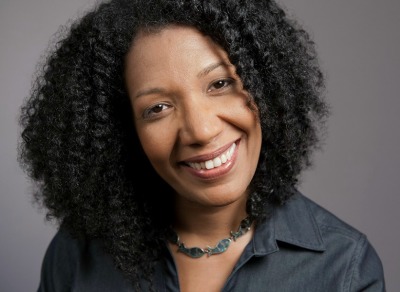Will We Teach the True Story of Thanksgiving?

Thanksgiving. That word holds profound meaning for Americans, most of it nostalgic. I remember in grade school when our classes would present Thanksgiving pageants that retold the story of Thanksgiving.
We all know it by rote:
The pilgrims were persecuted in England (probably because the men wore buckles on their hats, culottes, and white stockings — who does that?). Anyway, in 1620, they got in a boat and sailed to America, where they met brown people in paper cutout, feathered headdresses and hand-me-down 1970s fringe vests and wrangler jeans. The pilgrims said "Hi!" and the headdress people (called "Indians," for no good reason) said "How!" When the pilgrims realized they didn't know how to cook the food in this "new world," the Indians showed them how to cook cornbread, cranberry sauce, and collard greens (or at least that's how the story went in my school). Turkeys were plentiful in the new world, so when the hat buckle people and the headdress people held a feast in November of 1621 to celebrate their new friendship, a turkey sat at the center of the table.
This is the way modern adults struggle to teach children the foundations of our nation's history. We take people who were starved, diseased, and dying in droves and we sanitize the picture by saying they were hungry and sick. We tell the story from the pilgrims' perspective and end it at the feast.
We don't continue to the part when the pilgrims, and later the Puritans, felt the crush of immigration from Europe and broke covenant with the Wampanoag people. The Puritans warred for more land and eventually Rev. John Eliot led the movement to convert the enemy rather than kill them outright. So they set up 14 prayer towns — whole towns dedicated to transforming the Wampanoag, Pequot, Algonquin, and Mohegan peoples, migratory hunting peoples, into sedentary praying subjects of the English crown. Those who did not convert were enslaved and shipped to islands in the Caribbean or enslaved by Puritans throughout the colonies.
The sanitized Thanksgiving pageant is, in fact, less teaching and more indoctrination. And thus starts the process of shaping our American worldview: Colonists are revered as saints fulfilling God's providence, the Wampanoag people are a generic band of "Indians," and the only death is the sacrificial offering of a turkey.
But the true sacrifice wasn't a turkey. It was millions of brown images of God that peopled North and South America before the Europeans "discovered" it.
In our sanitized American doctrine, arrogance, fear, epidemics, and murder are erased from the story. Instead, good pilgrims offer thanks to God for what God has given. But God didn't give it. It was taken. The land was manipulated out from under the care of those to whom the Creator did entrust it.
What will it take for us to face our history head on — to face the sinful foundations upon which we stand?
Perhaps the present mayhem of our world can serve as a wake-up call to us all. For nearly five hundred years the colonizing spirit gobbled up land and territories across the globe. In its wake, indigenous peoples were cleansed from their lands, exploited, manipulated, and led to believe they were not fully human until they were converted to Western culture.
And in the world today, we see the outcomes of centuries of colonization. We see nations falling apart, and others flailing. Those formerly enslaved within Western colonies are rising up and screaming in the face of militarized officers of the state, "Black lives matter!"
And brown people, whose stories swirl with the blood of African, Mayan, Incan, and conquistador ancestry, are migrating north or languishing in an exploited south after centuries of denial of their inherent dignity and right to exercise their own dominion.
Upon this backdrop will hundreds of millions of Americans join hands on Thanksgiving Day. We will pray prayers of thanks for bounty. We will appreciate our families. We will smile as we remember the school play where little Johnny had the supreme honor of playing the turkey. And he said his one line so perfectly — "Gobble, gobble" — before being sacrificed for the whole.
And we will sit around dining tables, and carve turkeys, and eat, and fall into a deep sleep.
But what if this year was different? What if this year churches told the real story? What if this year churches and faith communities across the country began to face the truth of our history? What if this year pastors and faith leaders entered into this season with a spirit of truth, and hope — hope that comes from knowing sin can be repented and what is broken can be repaired? What if this year people who claim to love God moved deep into the process of loving God's image in every corner of the earth? What if we allowed ourselves to lament the sin of our ancestors? What if we leveraged this season as an opportunity to enter into a deep healing and cleansing — a season when God shows us a new way of living together?
What if …




























